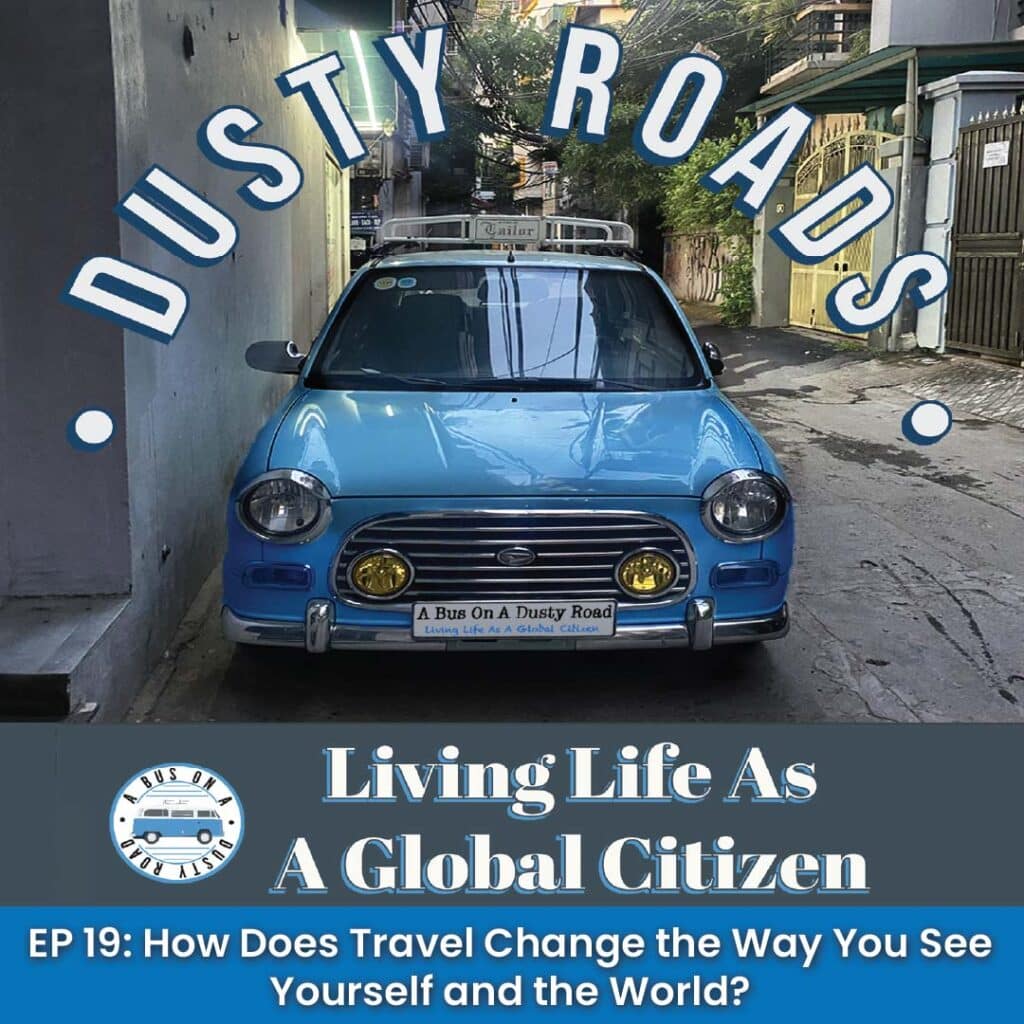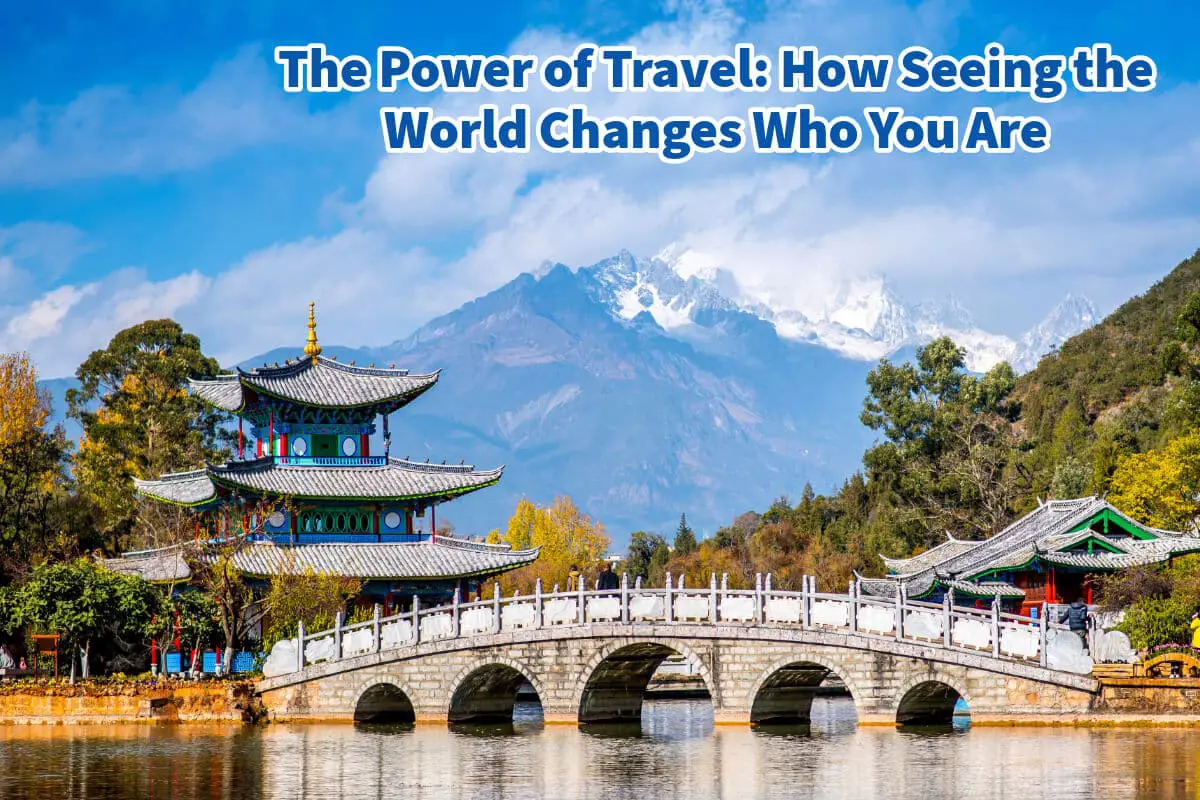Travel isn’t just about visiting new places. It’s about stepping into someone else’s world, even for a moment. It’s about shifting your perspective, challenging your assumptions, and returning home as someone slightly different than who you were when you left.
I experienced this firsthand during my college years when I traveled to China. That journey had a profound and lasting impact on me, changing my life in many meaningful and profound ways.
Table of Contents
- Discovering Life Lessons During My College Summer Journey Through China
- Becoming a Lifelong Believer in The Transformation of Travel
- Related Questions
Discovering Life Lessons During My College Summer Journey Through China

I learned this firsthand one summer during college while traveling across China for five months. It was the mid-1980s, and few foreigners were venturing far beyond the major cities.
I didn’t go for luxury or comfort. I went to see something real. I boarded trains that rattled through the endless countryside and buses that bumped along dirt roads leading to places without English signs or expectations of Western visitors.
I met people who had never spoken to someone from the U.S. before. We communicated with gestures, broken Mandarin, and shared meals. What I saw in the markets, small towns, and the faces of farmers and factory workers changed me. It showed me a China most tourists never see—one defined by resilience, community, and complexity.
That trip reshaped my worldview, deepened my empathy, and gave me a new lens to understand not just China but people in general. And that’s the real power of travel. It’s not the postcard moments; it’s the unfiltered, often unexpected encounters that quietly rearrange how you think, feel, and see the world.

Travel Builds Empathy
There’s a growing body of research showing that immersive travel increases empathy. A 2017 study from the Journal of Personality and Social Psychology found that people who spent extended time abroad scored higher in perspective-taking and emotional understanding measures.
But, when you live among people whose lives look very different from your own, it becomes harder to dehumanize them. You start to see the nuances. You stop lumping people into “us” and “them.”
My experience in China taught me this in a way no textbook ever could. I remember riding a packed train where I sat across from an older man who wore a Mao jacket and had hands worn from decades of work.
We shared sunflower seeds and some watermelon. He told me about his children, the land reforms, and the changing times. It wasn’t a political debate; it was a human exchange.
I saw him not as a representative of a changing regime but as a father, a worker, a human being with hopes and frustrations just like mine. That stays with you.

Travel Sparks Creativity
It turns out that travel doesn’t just make you more empathetic—it also makes you more creative. According to research published in the Academy of Management Journal, people who live abroad (not just visit) tend to develop more excellent creative problem-solving skills.
Why? Because adapting to a new culture pushes your brain to think differently. You’re constantly decoding unfamiliar cues, adjusting your behavior, and finding new communication methods.
In China, I had to figure things out with limited language skills and a limited guidebook for rural regions. I learned to read the room, pay attention to non-verbal signals, and adjust quickly.
That kind of cognitive flexibility sticks with you. It’s helped me in my work, relationships, and life’s unpredictable turns.

Travel Reconnects You with Purpose
One of the most surprising benefits of immersive travel is how it can reconnect you with a sense of purpose. When you’re taken out of your daily routine and exposed to vastly different ways of living, you question your assumptions about what matters, reevaluate your goals, and ask more significant questions.
Traveling through China at such a formative age did precisely that for me. I saw people making do with little, communities pulling together, and a rhythm of life that prioritized family and endurance over consumerism.
It forced me to ask what kind of life I wanted to lead. What did I value? What did I need? That trip planted seeds that would later guide big decisions in my life.

Real Stories, Real Change
My story is just one among many. Ask any seasoned traveler, and you’ll hear similar stories of transformation.
A woman who volunteered in Kenya and came back to start a nonprofit. A man who backpacked through South America and rethought his career path. A student who spent a semester in Morocco and began to question the media narratives she’d grown up with.
When done with intention, travel can interrupt our patterns and make space for growth.
It doesn’t have to be international or long-term, either. Even short trips to unfamiliar parts of your country can shake things up meaningfully. It’s about curiosity and openness more than miles.
The Good Kind of Discomfort
One reason travel is so transformative is because it throws you off balance. You must navigate the unknown, deal with discomfort, and find footing in a new environment. That’s not always easy—but it’s where growth happens.
I remember getting lost cycling in a small town in Guilin, China, unsure how to ask for directions. A local family noticed my confusion and invited me for lunch and tea.
We couldn’t speak the same language fluently, but they offered warmth and hospitality I’ll never forget. That moment reminded me how kindness often doesn’t need words.
Discomfort isn’t the enemy. It’s the teacher. Travel teaches you humility. It teaches you to listen more, judge less, and adapt constantly.

Becoming a Lifelong Believer in The Transformation of Travel
Since that summer in China, I’ve become a lifelong believer in travel’s power to change people, not just for escape or fun (though it can be both) but as a tool for self-development.
Every trip, conversation with a stranger, and time I get a little lost adds another layer to who I am.
The more I see of the world, the more I realize how interconnected we are all. Our differences are fundamental, as are our shared desires for love, safety, community, and meaning. That understanding has made me more grounded, curious, and committed to living with intention.
Final Thoughts
Travel isn’t a cure-all, but it is a catalyst. It nudges you out of your comfort zone and into deeper awareness. Whether it’s five months across a foreign country or a weekend road trip somewhere new, stepping outside your bubble matters.
If you let it, travel can challenge you, teach you, and, yes—change you.
Not everyone will take the same path I did. But if you can see another way of life up close, take it. Ask questions. Listen hard. Let it mess with your assumptions. You might come home changed. And in the best way possible.
Listen To Our Podcast About
How Does Travel Change the Way You See Yourself and the World?
Below or By clicking here.

At A Bus On A Dusty Road, we talk about travel, life, and ex-pat living. We are all about “Living Life As A Global Citizen.” We explore social, cultural, and economic issues and travel.
We would love to have you be part of our community. Sign up for our newsletter to keep up-to-date by clicking here. If you have any questions, you can contact me, Anita, by clicking here.
Listen to our Podcast called Dusty Roads. You can find it on all major podcast platforms. Try out listening to one of our podcasts by clicking here.
Subscribe to our A Bus On A Dusty Road YouTube Channel with great videos and information by clicking here.
Related Questions
Why China Is Safe For Traveling With Children, 10 Reasons
As someone who has lived, worked, and traveled extensively throughout China, from its bustling metropolises to its serene countryside, I can confidently say that China is a safe destination for travelers of all ages, including families with young children.
Whether navigating the streets of Beijing, exploring Xi’an’s ancient wonders, or enjoying Guilin’s scenic landscapes, parents can rest assured that China offers a secure and welcoming environment. I’ll delve into ten reasons why China is a safe place to travel with children, drawing from my experiences and observations.
You can discover more by reading our blog Why China Is Safe For Traveling With Children, 10 Reasons by clicking here.
Does It Snow In China? And Other Weather Facts
Living and working in China for many years has given me a unique perspective on its diverse climate. I’ve been fortunate to travel to numerous parts of the country, experiencing its weather in all its glory and variations.
What struck me the most was the vast difference in weather conditions across China. For someone like me, who has roamed its vast landscapes, I can confidently say that China’s weather isn’t monolithic. The southern regions, where I initially spent a significant amount of time, rarely see snow. However, as I ventured to the northern parts, the narrative changed dramatically, and it does snow in many parts of China.
You can learn more by reading our blog Does It Snow In China? And Other Weather Facts by clicking here.
China Developing Country: China As Developing Country Myth
My initial journey to China was in the mid-1980s, during an era when it bore little resemblance to the China we see today. China is a country that has seen significant changes in the last 50 years.
China’s swift rise on the global economic stage is genuinely remarkable. Transitioning from a primarily agricultural society to an industrial giant in a relatively short span, China’s metamorphosis has been astounding. Yet, its designation as a “developing” nation remains debated. This blog will explore if the “developing country” tag remains apt for China.
By clicking here, you can discover China Developing Country: China As Developing Country Myth.

